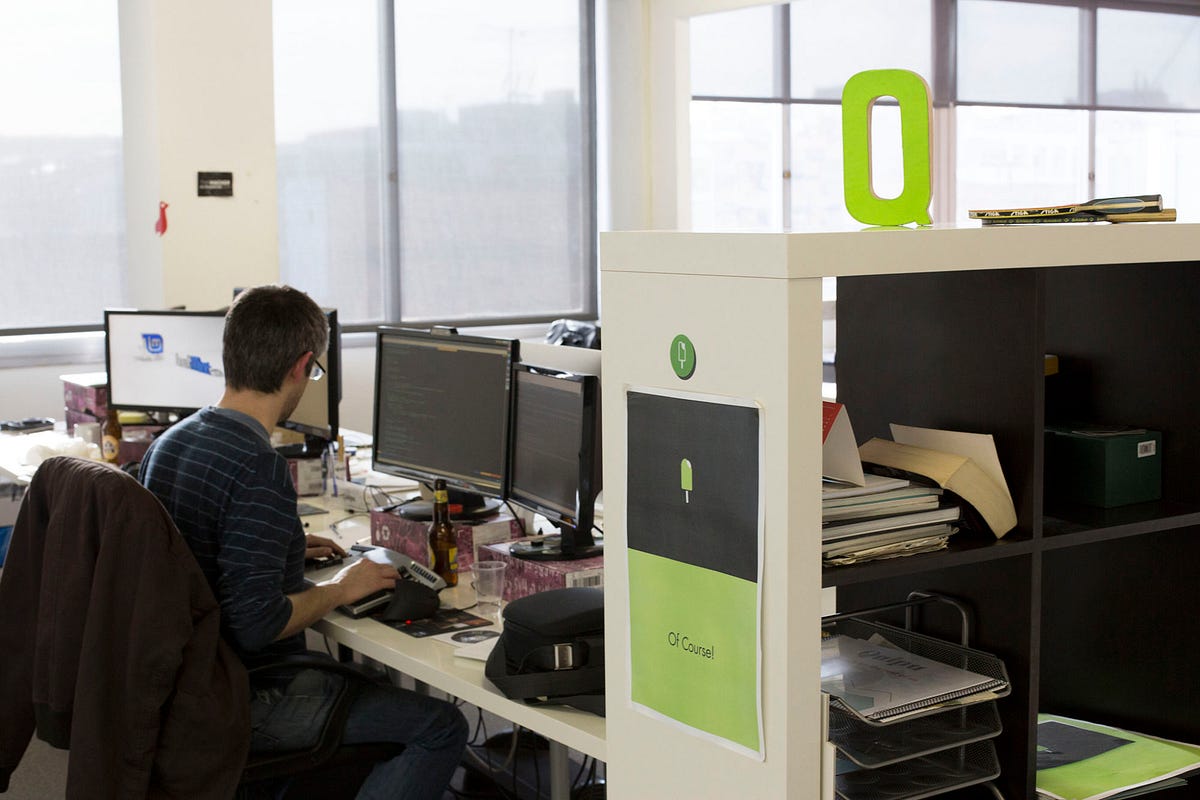The first accelerator as we know it was Graham’s YC in 2005, followed by the franchise Techstars (2006), Seedcamp (2007), 500 Startups (2010), up to 1.600 currently in Crunchbase , along with incubators, seed funds, investment clubs, pitch forums, bootcamps, weekend hackathons, public and corporate incubators, … they are all different models that systematically look for winner teams and exchange a relatively low upfront investment, a set of services, a grid of mentors and other creative perks in exchange for equity stakes in their companies.
The profit of this model usually comes from returns on capital. One characteristic of equity based business models is that they yield results in the long term (generally 4–7 years). Thus, in practice, we’ve had virtually no time to see any of this models succeed just yet, even the few biggest ones have kept growing their expectations and none has yet consolidated and shown a real business success case (as accelerators, not as portfolio startups).
Conversely, we’ve seen many accelerators rise and fall, and they’ve shown less rigor and validation in their plans and results than the startups they try to accelerate. Plus, most accelerators have required a lot of cash to sustain their team structures and the startup investments, no matter how low they are. And their ordinary income is usually limited or zero.
Systematizing opportunities
How can we industrialize the hunt for opportunities that have the statistical probability of finding a needle in a haystack?
I learned that opportunities show up while looking for something else. Most business success stories have a big part of that, they are based on a series of random events in time combined of course with commitment, vision and great effort. And yet, none of these stories are repeatable. Most stories require different learning paths, resources, timeframes, influences, etc. to reach success. To give real support to that, we would need to create a tailored suit for each company.

But accelerators keep promising their investors that they are better-off in finding opportunities systematically, and defining one-fits-all programs for N number of companies, with N number of office hours, N mentors, N resources per startup, and so on. But the question remains, are they really creating value or systematically praying to find a winner team in each batch?
We could argue that, if you are the best of the best, that is: you have rockstar partners full-time involved in the screenings, top-notch mentors such as Zuckerberg, Houston or Hoffman influencing the program, you are guaranteed future investment no matter what you do, you have a real network of first corporate clients, potential partners and suppliers.
You would be creating a closed economy capable of triggering self-fulfilling prophecies. But you should still cope with the intensity and the rhythm, digest applications from the best entrepreneurs in the world in very very big numbers, and keep doing that forever, if you are to maintain your program running. Very few accelerators fit in that description, maybe only Y-combinator. Even other popular ones like 500 Startups are moving up to more advanced stages of the investment lifecycle, and others are focusing on doing “innovation consultancy” to corporations (which is an entirely different business model).
For equity to be revalued and returned, the most usual case is selling or IPO. Other possibilities for selling stock are very hard, and usually out of control. So in the business plan of any accelerator, it is hard to add lines of income (from returns on equity) at any point in time. The only predictable cash-in is that paid by investors.
We should add up all the chaos from a startup lifetime: founder fights, many financial rounds, creative VC contracts, expensive executives, and other painful but unavoidable woes in each startup life. At some point the once shiny presence in the cap table has evolved to pure insignificance.
So there’s no step in this chain which I wouldn’t tag as HARD or highly unlikely:
- Hard to attract great deal flow
- Hard to choose good from mediocre from big crowds
- Hard or expensive to invest in high number of startups
- Hard to survive and scale
- Hard to liquidate and sell…
The conclusion is that accelerators have even less chances of success than the startups they accelerate.
Screenings and mentors
Pitch screenings usually are the only way to digest all the deal flow of startups in a finite amount of time. But, if you pay attention to the process, you realize that it has more to do with theater playing and story telling than scientific business facts.
It is difficult to make good choices based on such short interactions, but at the same time it is the only way to fit 10, 20 or up to 80 candidates in a program (out of 100, 200 or 1000).
Another at least questionable thing are the mentor grids. Every accelerator has their own mentor grid, many of them are shared between different accelerators. In some cases, mentors are self-assigned, and usually they are paid in equity.
In the real world, a good entrepreneur will have to fight to search and gain his/her own allies. The best mentor is the one that has valuable knowledge for the particular sector or activity of the startup and creates a long term love relationship with the entrepreneur and the project. The best mentor is convinced to risk his/her own money to invest in the company. The best mentor has something to loose when he/she gives advise.
In some cases, mentors, or even accelerator managers don’t have direct experience scaling real world businesses, and seek to learn themselves from startups and not otherwise. This makes it even more difficult to create the right abstraction for the acceleration program to work, not to mention to plan for its industrialization.
Conclusions
We keep hearing the songs about “unicorn” startups that combined are worth more than most European countries GDP. Who can blame contenders who want to replicate that in their backyard? But often, the real risk involved is closer to pure gambling.
Don’t get me wrong, accelerators are great for society and economy. Most entrepreneurs don’t know where to start from, and any structured help can put them up on their feet. And they are not stupid, if they decide to be accelerated it’s because they are getting value from it… their business will be the sequence of their decisions after all. One different thing though is wether accelerators are capable of capturing value for themselves. At least most of them proved the opposite.
They combine so many highly unlikely and unpredictable success factors that in practice they are almost impossible to plan and execute.
Top ones aside, the future of accelerators will be more tied to the government (either directly or through public subsidies), as they do have a social benefit and it is fair to be so, or they will be tied to corporations as purely subsidized think tanks (hopefully entrepreneurs will understand the real implications of that), or they will become highly specialized by sectors.
Many existing ones will evolve to either venture funds (post-traction investment funds) or venture builders (responsible for the entire execution of the business).
Why itnig is a venture builder
At itnig we start one or two companies each year from scratch with teams who have previously worked with us in some way, so we know how they think and execute. We don’t do screenings, instead we analyze markets.
We don’t have a fixed program, instead we accept direct responsibility to scale each business as any other founder. We don’t have a short-term exit plan, but we keep involved and working in the business for as long as it requires.

Our goal is to grow the business as much as possible and execute its vision, it is not to solely to raise new financial rounds. Our services are not based on equity, they are paid by startups at their cost, according to the needs of each startup. We strive to keep always a very lean and flexible common structure (outsourced if necessarily), making sure it never becomes a yoke to anyone, and we are 100% transparent about our ordinary P&L with the rest of the founders, so there is no room for conflicts of interest.
Of course a venture builder has many cons too, as it is less diversified and it involves much bigger risk per investment, but that would be the subject of another post.
At itnig we put all our focus in finding the right talent to work in our startups, part of this talent will be our cofounders in our future ventures.
Feel free to check out our website, participate in any of our events, or learn about our open positions.